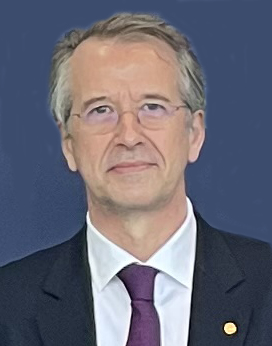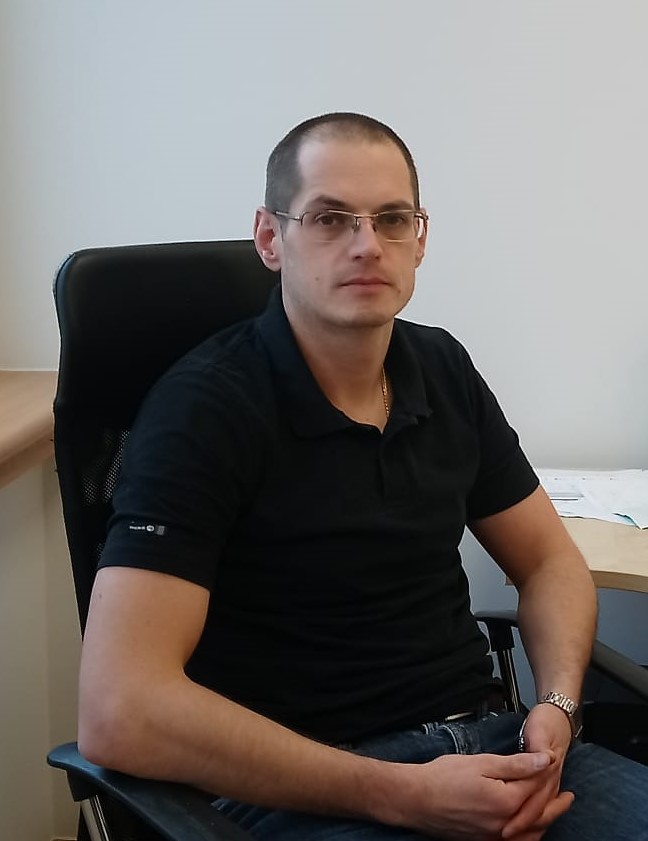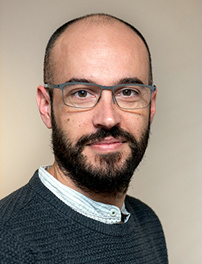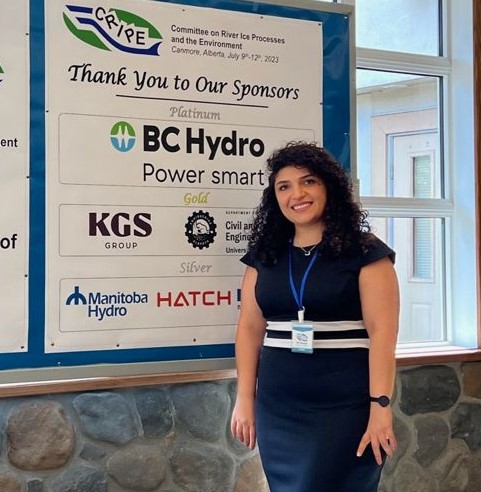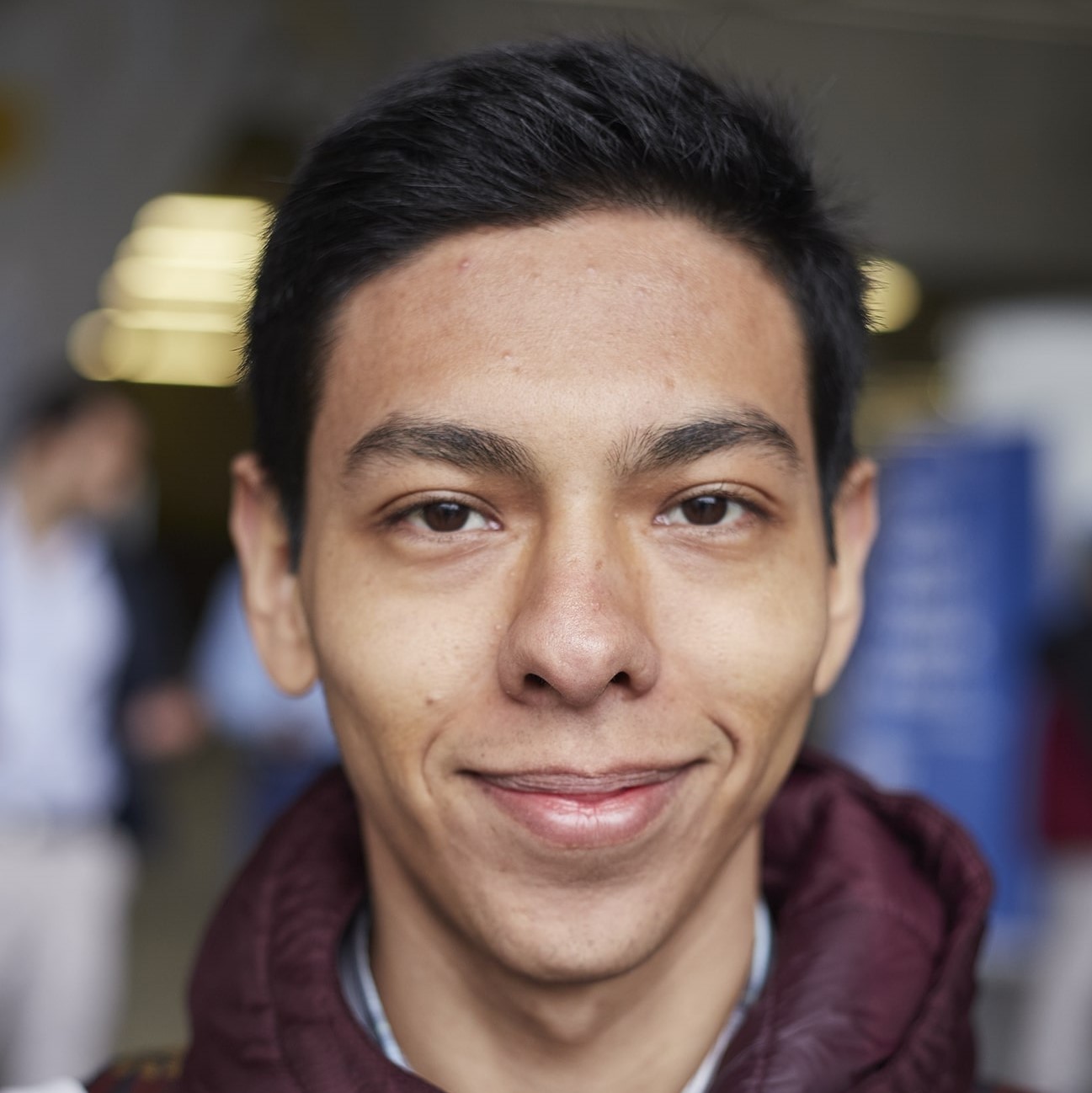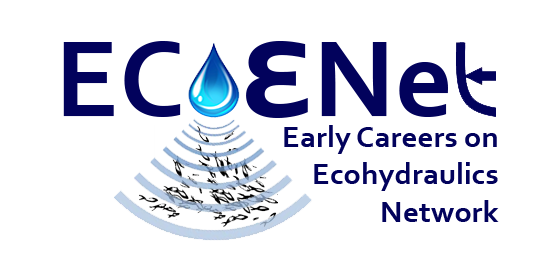Programme 5th IAHR Young Professionals Congress
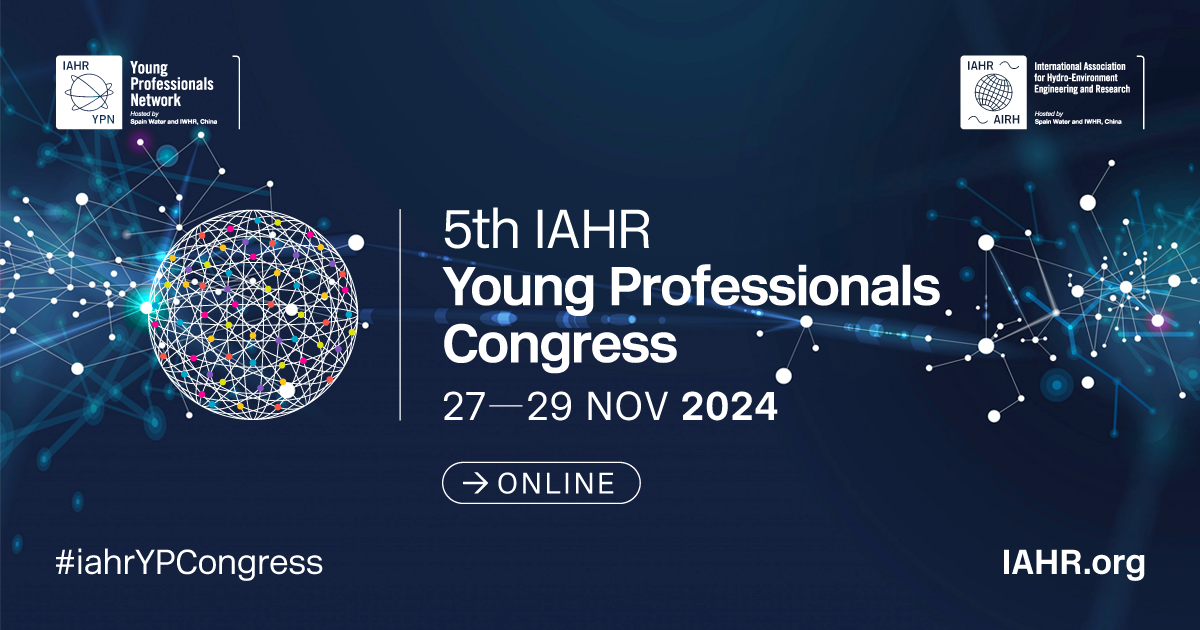
5th IAHR Young Professionals Congress
27-29 November 2024 | Online
Congress Website Congress Report Keep Updated
The IAHR Young Professionals Congresses give young professionals, researchers and students the opportunity to present their work and access mentoring from leading global experts. The event is an ongoing annual series organised by young professionals and for young professionals. Free and open to all. Register to attend!
Programmme
Times in CET | Check your TIME
Day 1 | Wednesday 27 November 2024
10:30 - 11:00 | Opening of the 5th IAHR Young Professionals Congress
Philippe Gourbesville, IAHR President
Michael Nones, Chair of the Organising Committee of the 5th IAHR Young Professionals Congress
David Ferras, Chair of the IAHR Technical Committee on Education and Professional Development
Universite Cote D'Azur (UCA),
France
Institute of Geophysics,
Poland
Polytechnic University of Cartagena, Spain
11:00 - 12:30 | Climate Change Adaptation I and Coffee Break with mentors
Chairs: Ravindra Vitthal Kale and Isabella Schalko
Hosts: José M. Carrillo and Eva Fenrich
Hydro-climatic modelling of a tropical West African catchment under climate change. Quentin Fiacre Togbévi, Yacouba Yira, Aymar Yaovi Bossa, Luc Ollivier Sintondji
Assessing the potential sensitivity of Typhoon Nesat to climate change under SSP5-8.5 scenario. Yujie Chai, Ioan Nistor, Abdolmajid Mohammadian, Ryota Nakamura
Climate change impact on catchment discharge using an ensemble of climate simulations. Quentin Fiacre Togbévi, Yira Yacouba, Aymar Yaovi Bossa
Effects of landslide disaster on the sediment transport of the Chikugo River using the 1D sediment transport model. Pan Ei Phyu, Gubash AZHIKODAN, Yokoyama Katsuhide
Enhanced LULC Mapping Tool for Change Detection and Temporal Analysis. Maukthik Srivathsan Jeganathan, Ravindra Vitthal Kale, Bhabagrahi Sahoo
Spatio-temporal rainfall variability and trends in Wolaita zone, south Ethiopia: A Kriging-interpolation and Innovative trend analysis approach. Elias Dado
Environmental Impacts of Drought: An Impact-Based Approach Using Google Earth Engine. Paula Serrano Acebedo, Natalia Limones Rodríguez, Mónica Aguilar-Alba
Development of a Multi-Criteria Decision-Making System for Integrated Offshore Wind and Wave Energy Farm Site Selection. Ajab Gul Majidi, Victor Ramos, Paulo Rosa Santos, Luciana Das Neves, Francisco Taveira-Pinto
Risk management in ports and coasts based on water sustainability. Karina G. Ocaña Espinosa de los Monteros, Cindy Casas Valencia, Manuel Mendoza Grande, Rodolfo Ramírez Xicotencatl, David humberto Segura Quiroz
Evaluating the effects of drought mitigation measures during flood events. Christopher Wittmann, Perry De Louw, Eva Schoonderwoerd, Vera Kingma, Ruben Dahm, Ellis Penning, Kees Peerdeman
12:30 - 14:00 | Climate Change Adaptation II and Coffee Break with mentors
Chairs: Paola Crippa and Petra Amparo López Jiménez
Hosts: Eva Fenrich and José M. Carrillo
Future precipitation and temperature trends in the regulated Chili system based on the SSP 1.26 and SSP 5.85 scenarios of the CMIP6 Global Climate Models. Sebastian Tapia Manchego
Spatiotemporal Assessment of Projected Reference Evapotranspiration under Climate Change. Fatemehsadat Mortazavizadeh, MAJID MIRZAEI, David Bolonio Martín
Hydrodynamic simulation of water flows and exchange processes in Lake Schwielochsee. Can Ölmez, Hagen Koch, Reinhard Hinkelmann
Investigating rainfall variability in the Okhotsk Region using information-complexity metrics. Mohamad Basel ALSAWAF, Yasuharu Watanabe, Katsuaki Komai, Yasuhiro Yoshikawa, Hidekazu Shirai
MODELLING ECOHYDROLOGICAL PARTITIONING IN A TROPICAL DRY FOREST IN COSTA RICA. Mohammad Shokrollahi, Gregor Rickert, Mikael Gillefalk, Matthias Beyer, Nicolas Martin St Paul, Malkin Gerchow, Alberto Iraheta, Ilhan Özgen-Xian
Rewilding for the protection of coastal areas. Karina G. Ocaña Espinosa de los Monteros, Cindy Casas Valencia, Manuel Mendoza Grande, Rodolfo Ramírez Xicotencatl, David humberto Segura Quiroz
Shifts in soil microbial co-occurrence patterns under permafrost degradation. Zhu Wang, Yang Liu, Fang Wang
Estimation of Clear Water Scour Depth around Bridge Piers: A Study using MARS and M5Tree Machine Learning Techniques. Anubhav Baranwal and Bhabani Shankar Das
Experimental Investigation of the Influence of a Sloped Bottom on the Behavior of Inclined Dense Jets. Xinyun Wang, Abdolmajid Mohammadian and Simone Ferrari
14:00 - 15:30 | Coastal and Maritime Hydraulics & Marine Outfall Systems and Coffee Break with mentors
Chair: Majid Mohammadian and Zhihua Xie
Hosts: Arianna Varrani and José Adriasola
Surrogate based sequential approximation for Sensitivity Analysis of the AMR equipped multiphase-CFD model. Fulkan Kafilah Al Husein, Nieldy Rejekinta Tarigan and Novan Tofany
Simulation of floating particles in the Gulfs of Patras and Corinth system (Greece). Alexandra G. Aspioti and Nikolaos Th. Fourniotis
Reduction of Tsunami-Induced Forces on a Structure Using a Rectangular Mitigation Canal: An Experimental Study. Reza Arefiseresht, Ioan Nistor, Abdolmajid Mohammadian
Port Container Throughput Forecasting With Univariate Models. Baviera Miguel, Aguilar Jose and Molines Jorge
Otis, the hurricane that exceeded all forecasts. Rodolfo Ramírez Xicotencatl, Francisco J. Molina Gachuzo, Manuel Mendoza Grande and Karina G. Ocaña Espinosa de los Monteros
NARX Model development for forecasting water level in the Ashtamudi estuary, India. K Vidyalashmi, Nandana J S, Megha Chandana L, Aparna Devi V M, Sreya K, Parvathy B, Abhirami A S, Priya K L, Gubash Azhikodan
Mass conservation analysis and physics capture of wetting and drying numerical treatments at moving boundary problems. Amyrhul Abu Bakar
Idealized modelling of water motion in a tidal inlet: error analysis of FEM-based spatial discretization. Tian Qi, Henk Schuttelaars and Tom De Mulder
Development of a 3-D hydrodynamic model for long-term analysis in the tropical macrotidal Tanintharyi River Estuary. Kyosuke Hamada, Gubash Azhikodan and Katsuhide Yokoyama
Buffer Blocks as Wave Energy Dissipators.Sakthi Vasanth Nagan, V Sriram, V Sundar and H Schüttrumpf
The impact of climate change on the reliability of rubble mound berm breakwaters considering the correlation among design parameters. Ali Jamali Rovesht, Mehdi Shafieefar
RISK DURING THE CONSTRUCTION OF MARINE WORK. Maria LLatas
Hydrodynamic changes of two lagoon systems in Sinaloa, Mexico under scenarios of sea level rise. Roman Canul, Mario Jiménez and Roselia Turriza
15:30 - 17:00 | Groundwater Hydraulics and Management and Coffee Break with mentors
Chair: Lucija Plantak and Paolo Colombo
Hosts: Eva Fenrich
Assessment of Groundwater Potential Zones Using Remote Sensing, GIS, and AHP Techniques in the Nilgiris District, Tamil Nadu. Akansha Tyagi, Vikas Kumar Maurya
Developing Integrated Adaptation Strategies and Networking for Climate Resilience in Urban Water Management in Central Europe. Lucija Plantak, Paolo Colombo
Establishment of a monitoring system for measuring the water conditions in the Buda Castle Cave. Fanni Gazda, Dávid Farkas, Géza Hajnal
HYDROGEOCHEMICAL AND GROUNDWATER QUALITY MAP OF MARGARITA ISLAND, VENEZUELA. Ana Vilchez, Ramón Montero
Impacts of interannual rainfall variability on groundwater in a micro-watershed on the Amazon rainforest. Alderlene Brito, Savio Ferreira, Didier Gastmans
Reflections on Groundwater Governance in Brazil. Willian Goetten
Potential Anti-Salt- Micro-Dam: Engineering Solutions for freshwater Distribution in the DAC of Itato (Kédougou). Mame Diarra Bousso Diouf, Tanya Llamuca
Evaluation of the water response of agricultural and natural vegetation areas to groundwater drought in central Chile. Iongel Duran, Francisco Zambrano, Abel Herrera, Lien Rodríguez, Rebeca Martinez
Day 2 | Thursday 28 November 2024
10:00 - 11:30 | Fluvial Hydraulics & Ecohydraulics and Coffee Break with mentors
Chairs: Daniel Hayes and Davide Vanzo
Hosts: Manish Pandey and Arianna Varrani
Applicability of environmental DNA to examine the habitat use of Japanese eels (Anguilla japonica) in a small river estuary. Saki Mizumura, Kanta Kobayashi, VISHAL SINGH RAWAT, Hiroaki Murakami, Gubash AZHIKODAN, Katsuhide Yokoyama
Biomimetic Design for Flow Hydrodynamics Manipulation: Tubular and Hemispherical Sponges. Masoumeh Hashempour, Morteza Kolahdoozan
Assessing HEC-RAS and AI Integration for Hydraulic Behavior Analysis of the Ottawa River. Mohammad Uzair Anwar Qureshi, Mohammad Shaheen, Juraj Cunderlik, Ousmane Seidou, Hossein Bonakdari
Automated detection of active channels of gravel braided rivers. Valeria Guadagno, Giuseppe Del Giudice, Enrica Viparelli, Matthew J. Czapiga, Cristiana Di Cristo, Angelo Leopardi, Diego Di Martire
BED SCOUR INDUCED BY PARTIALLY EMBEDDED PIPELINES CROSSING RIVERS AND STREAMS. Lucas Celia, Ana Maria Ferreira da Silva, Saeid Ahadi
Evaluation of the two-dimensional hydrological model HEC-HMS in a mediterranean semiarid basin. Alberto Hernández-Berzosa, José María Carrillo, Juan Tomás García Bermejo
Investigation of wood accumulation effects on river morphology around bridge piers. Ali Mahdian Khalili, Pouria Akbari Dadamahalleh, Hossein Sohrabzadeh Anzani, Mehdi Hamidi
Numerical simulation of subcritical, open-channel flow in the presence of rigid vegetation. Theodora Kalaryti, Nikolaos Fourniotis, Efstratios Tzirtzilakis
Riparian vegetation dynamics derived from spectral indexes and field measurements. Yiwei Guo, Nones Michael
Testing the BIM methodology in fluvial engineering. Bartolomé Morote Sánchez, José María Carrillo
Variation in Scour Depth with a Triangular Splitter Plate: A Numerical Study. Anika Govil, Ellora Padhi, Gopal Das Singhal
11:30 - 13:00 | Fluid Mechanics & Ice Research and Engineering & Hydraulic Machinery and Systems and Coffee Break with mentors
Chairs: Tomasz Kolerski and Claudia Adduce
Hosts: Manish Pandey and David Ferras
Application of Algebraic Wall-Modeled LES approach for simulation of jet pumps. Akbar Ravan Ghalati, Jay Lacey, Sébastien Poncet
Assessment of DFSEM for providing turbulent inflow boundary conditions to the Large Eddy Simulation of a T-shaped open-channel confluence. Alemu Tezera Dessie, Saeed Hashemikia, Tom De Mulder
Fully Developed Open-Channel Flow Over a High-Density Mussel Bed Partially Buried in a Gravel Bed.Tommaso Lazzarin, George Constantinescu, Hao Wu, Daniele P. Viero
Hydraulic Checks of Overflow Structures in the Sanitation Network Using Hydraulic Simulation Software. Luis Caja, Jose Vilarroig, Javier Climent
Numerical Modeling of Sediment Transport and Incipient Motion in Crosswise Trenches: Assessing Geomorphological Changes. Zahra Senobari, Hanifeh Imanian, Morteza Kolahdoozan, Masoumeh Hashempour
Detection of incipient motion for non-buoyant plastics under wave motion. Giulia Bonanno, Giovanni Passalacqua, Claudio Iuppa, Carla Faraci
Analysis of Salto Grande´s Power Upgrade. Ignacio Texeira
13:00 - 14:00 | Keynote lecture "Bedload transport and bed morphology in partially ice-covered channels"
In cold climates, the formation of border ice along riverbanks during winter introduces changes to river dynamics and geomorphology, influencing sediment transport and bed morphology. While there is substantial research on sediment transport in open channels and fully ice-covered conditions, studies on partially ice-covered channels are relatively limited.
This presentation highlights laboratory experiments conducted at the University of Manitoba’s Hydraulics Research and Testing Facility, exploring how factors such as ice extent, flow strength, and border ice symmetry affect bedload transport and bedform characteristics. Findings confirm that partial ice cover has a significant influence on bedforms within the channel and on the distribution of bedload transport, particularly at lower flow strengths. This research provides essential insights for river engineering in cold climates, with implications for both academic study and industry practice.
University of Manitoba,
Canada
Chair: Michael Nones, Chair of the Organising Committee of the 4th IAHR Young Professionals Congress
14:00 - 15:30 | Experimental Methods and Instrumentation & Hydraulic Structures and Coffee Break with mentors
Chair: Stefan Felder and Nadia Penna
Hosts: José Adriasola and Arianna Varrani
Enhancement of XBeach Model Performance with X-Band Radar Data during Flood Events. Ivan Aliyatul Humam, Satoshi Takewaka
Evaluating Measurement Techniques for Velocity in a Natural Channel. Miguel La Torre, Denisse Rojas, Pedro Rau
Hydromorphological assessment of a data-deficient catchment in the Aral Sea Basin. Justine Carey, Severin Hohensinner, Bernhard Zeiringer, Stefan Schmutz, Ianina Kopecki, Tobias Hägele, Hannah Schwedhelm, Jan De Keyser, Daniel Hayes
Tsunami characterization using Particle Image Velocimetry method. Paula Dasi, Jorge Molines, Colin Whittaker, Enrique Ripoll, Josep R. Medina
The necessity of low-impact weirs in Indonesia to balance the weir development and socio-environmental sustainability. James Zulfan, Laura Montano, Fiona Johnson and Stefan Felder
Re-aeration of nappe flow over a prototype stepped spillway. Tohid Jamali, Daniel Bung and Sébastien Erpicum
Numerical simulations of hydrodynamic drag coefficients for different bar geometries. Cumhur Ozbey and Serhat Kucukali
Assessing the Influence of Opening Ratio on Sharp-crested Weir Performance. Hossein Sohrabzadeh Anzani, Ali Mahdian Khalili, Sameh Ahmed Kantoush and Mehdi Hamidi
Surface flow pattern and bed morphology interdependency in the vicinity of hydraulic structures. Daniel Beetz, Christin Kannen, Frank Seidel, Mário J. Franca
Numerical investigation on the efficiency of tuned liquid dampers as structural vibration control. Mahdiyar Khanpour, Abdolmajid Mohammadian, Hamidreza Shirkhani and Reza Kianoush
Modeling the Impacts of a Storm Surge Barrier on the Hydrodynamic Regime of the Ham Luong Estuary. Duc Thanh Nguyen, Hai Pham Duc, Trung Le Hai and Hong Son Truong
15:30 - 17:00 | Urban Drainage and Coffee Break with mentors
Chairs: Maria Sambito and Veljko Prodanovic
Hosts: Manish Pandey and José M. Carrillo
Real-time control impact on the performance of blue roofs in different rainfalls. Shahrzad Hamidiaala, Hamidreza Shirkhani, Abdolmajid Mohammadian, Sophie Duchesne
Performance of analytical models predicting upstream-to-downstream water depth ratios in asymmetric open-channel confluences with width discordance. Saeed Hashemikia, Alemu Tezera Dessie, Greet Deruyter, Tom De Mulder
Application of a novel first flush identification and quantification methodology in a ceramic tiled roof runoff. Thiago Osawa, José Rodolfo Scarati Martins
Sediment depth estimation in urban drainage gullies using thermal analysis. Manuel Regueiro-Picallo, Antonio Moreno-Rodenas, Francois Clemens-Meyer, Lenard Fuchs, Jörg Rieckermann
Application of HBV model for urban streams' water regime modeling: case study of Konkovsky stream (Moscow, Russia). Olga Ovchinnikova
Evaluating the Efficiency of the Domestic Multi Recycler (DMR) for Wastewater Treatment at the Pirana Plant in Ahmedabad. Mohammad Uzair Anwar Qureshi, Hitenkumar Harish Motiyani
Characterization of Urban Debris for Hydrodynamic Transport Experiments. Saifei He, Gabriel Micheletti, Juan Naves García-Rendueles, Jose Anta Alvarez, Antonio M. Moreno-Rodenas, Mário J. Franca, Daniel Valero
Pressure Management and Machine Learning Application for Leakage Reduction in Urban Water Distribution Networks. Amir Noori, Ehsan Roshani, Hossein Bonakdari
Thermal monitoring of Sustainable Drainage Systems (SuDS) in the field: an application to dry swales. Carlos Rey-Mahia, Felipe P. Álvarez-Rabanal, Luis A. Sañudo-Fontaneda
New data on the distribution of suspended sediments in the urban river stream: results of field experiments with LISST-200X. Oleg Loshkov
Development of IDF curves in the absence of high temporal resolution data. Jadran Berbić, Željko Šreng, Marin Grubišić
Identification of pollution sources in rivers in dense urban context: what do we need?. Yoann Cartier, Arthur Guillot-Le Goff, Rémi Carmigniani, David Métivier, Thomas Einfalt, Paul Kennouche, Brigitte Vinçon-leite
How to forecast water quality based on rain forecast for urban swimming?. Arthur Guillot - Le Goff
2D Dispersion Modeling of Wastewater Discharge Downstream in the Suquía River, Córdoba, Argentina. Aiken Monasterio, Sebastián López, José Manuel Díaz Lozada, Nicolas Guillen, Carlos Marcelo García
Day 3 | Friday 29 November 2024
10:00 - 11:00 | Keynote lecture "Impact from El Niño Phenomenon and Climate Variability at a Large and Local Scale on the Flows of the Piura and Rímac Rivers"
The study examines the link between El Niño-Southern Oscillation (ENSO) and streamflow behavior in Peru’s Piura and Rimac basins, regions often impacted by ENSO-driven floods. It aims to update the correlation between ENSO indices and streamflow in these areas and to assess flash flood behavior using a large-scale particle image velocimetry (LSPIV) method. The researchers found that correlations between ENSO and streamflow have fluctuated over the past decades, with significant changes beginning in the 2000s, indicating shifts in flood and drought risks. Additionally, the use of LSPIV at SMVN stations enabled accurate, low-cost measurements of flash flood flows in specific locations. The study’s findings contribute to understanding how ENSO impacts flood patterns, aiding in future flood management and preparedness.
IAHR UTEC-Peru Young Professionals Network,
Peru
Chair: Michael Nones, Chair of the Organising Committee of the 4th IAHR Young Professionals Congress
11:00 - 12:30 | Hydroinformatics & Global Water Security and Coffee Break with mentors
Chairs: David Vicente and Qiang Ma
Hosts: Arianna Varrani and Qian Yu
Using symbolic machine-learning as a metamodel for chlorine decay in the water supply network of Bogotá. Laura Enriquez
A 1D finite element scheme for the simulation of non-hydrostatic free surface flows. Matteo Savino, Alessia Ferrari, Renato Vacondio, Paolo Mignosa
Comparison of tree and ensemble supervised learning chain models for prediction of mean monthly flow. Jadran Berbić, Eva Ocvirk
Enhanced LULC Mapping Tool for Change Detection and Temporal Analysis. Maukthik Srivathsan Jeganathan, Ravindra Vitthal Kale, Bhabagrahi Sahoo
Mapping of Abrasion Damages in Sediment Bypass Tunnels Using Machine Learning. Ahmed Emara, Sameh Ahmed Kantoush, Mohamed Saber, Sumi Tetsuya, Emad Mabrouk
SOILPARAM 2.0: A Hydroinformatics Tool for Near Real-Time Hydroclimatic Data Access and Forecasting. Mohammad Zeynoddin, Hossein Bonakdari, Mohamed Khelifi
STUDY AND CHARACTERIZATION OF C AND CN FOR WATERSHEDS IN CAUCA, COLOMBIA: CORRELATION AND IMPLEMENTATION. Dayanna Jimenez, Felipe Agredo
Presence and Characterization of Microplastics in Drinking Water and Soft Drinks in Selangor, Malaysia. Nurul Rabitah Daud, NUR LIANA AHMAD ASHAIDI
Micro-pressure promotes endogenous phosphorus release in a deep reservoir by favouring microbial phosphate mineralisation and solubilisation coupled with sulphate reduction. Tianyu Zhuo
Optimized stacking ensemble for groundwater quality prediction in Kanyakumari District, Tamil Nadu, India. Annie Jose, Srinivas Yasala
Features of the water regime of high-altitude rivers of the Altai Mountains: case study of the Katun River. Alena Averina
Optimization of Hydraulic Data Analysis and Processing through API Integration: Application in a Water Pipeline Project in UAE. Juan David Guerrero Delgado
12:30 - 14:00 | Flood Risk Management and Coffee Break with mentors
Chair: Stefan Haun and Ali Pourzangbar
Hosts: Manish Pandey and Qian Yu
Impact of Climate Variability on Ottawa River Flow Depth Using Bayesian Analysis. Isa Ebtehaj, Mathis Royer, Hossein Bonakdari
Risk-Based Design for Urban Flood Risk Reduction: A Cost-Benefit Perspective. Ahmed Owais Durrani, Arosio Marcello
SCOURING PROCESS ANALYSIS OF LANDSLIDE DAMS - A CASE STUDY OF THE BAIGE LANDSLIDE DAM BREAK BASED ON NUMERICAL MODEL. He Meng, Zhang Xinhua, Wang Dongbo
Delimitation of flood risk zones and tsunami currents in Acapulco, Mexico. Karina Ocaña, Rodolfo Ramirez, Javier Molina, Manuel Mendoza
HYDRO DYNAMIC SIMULATION OF DAM BREAK FLOW USING HEC-RAS. Rahul Kandakatla, Dr Kamalini Devi, Dr Jnana Ranjan Khuntia, Dr Bhabani Shankar Das
Identifying runoff generation areas for flood control in an ephemeral basin. Piero Zuloeta, Pedro Rau, Andrés Goyburo
Reconstructing Historical Flood Events Using Monte Carlo Approach and Automated HEC-RAS 2D. Ramtin Sabeti
Modern water balance of the Caspian Sea: potential disaster scenarios. Artem Kochnev
14:00 - 15:30 | Water Resources Management I and Coffee Break with mentors
Chair: Ramesh Teegavarapu and John Okedi
Hosts: Eva Fenrich and José Adriasola
A STUDY ON MICROPLASTIC DISTRIBUTION IN ASHTAMUDI ESTUARY DURING PRE- MONSOON PERIOD. Harikrishna S, Nija Thomas, Sreeparvathy S S, Vysakh M, Priya K L, Gubash Azhikodan
An Experimental evaluation of photo-degradation of cage nets under different environmental conditions. Zeinab S, Praveena P, Hannah Ann George, Hage Sumpi, Beema Jihan, Ashna Abbas, FIRDHOUZ MOHAMED R, Jithu Ravi, Priya K L, Indu M S, Baiju V
Assessing Climate Change Impact on Precipitation Patterns: A Comparative Multi-Model Analysis for Ottawa, Canada. Mathis Royer, Isa Ebtehaj, Hossein Bonakdari
Chemical coagulation for freshwater treatment with reference to microplastics removal. Fathimy R, Jitha Das, Deepa Oommen, Athulya Krishnan M, Gouri Nandana S, Dr Priya K L, Dr Indu M S
Citizen Science in Vasai-Virar : Data, Mapping and Community. Sachin Marti
Propagation and Characterization of Drought in the Upper Rimac system, Peru. Andres Figueroa Curo, Pedro Rau, Alessia Matano
Diurnal fluctuations of dissolved oxygen in lakes with different trophic states. Semyon Polukhin
Effect of the chemical composition on the reverse osmosis filtration. Juan Ernesto Ramírez Juárez, Victoria Martínez, Ángel Villalobos, Edith Olmos, Claudia Ávila, Fidel Ortiz
Integrated Approaches for Sustainable Soil and Water Management in the Context of Climate Change. Subhasri Sarkar (Dutta)
A Real-World Application of SOILPARAM Data Proxy App for Mapping Water Table Depth and Data-Deriven Modeling. Mohammad Zeynoddin, Silvio José Gumiere, Hossein Bonakdari
Simulation of water and thermal regime of urban lakes. Kristina Pilipenko
Spatiotemporal Assessment of Projected Reference Evapotranspiration under Climate Change. Fatemehsadat Mortazavizadeh, MAJID MIRZAEI, David Bolonio Martín
15:30 - 17:00 | Water Resources Management II and Coffee Break with mentors
Chairs: Carlos de Oliveira Galvão and Dalila Loudyi
Hosts: José M. Carrillo and Arianna Varrani
Estimating the water requirements per sector in Europe. Angelos Alamanos, Phoebe Koundouri
Estimation of solar radiation using shadow in a mountainous reservoir. Yusuke Shinohara, Katsuhide Yokoyama, Ghazaleh Kheiri, Azhikodan Gubash, Tetsuya SHINTANI, Akihiro Takahashi, Haruko Kunieda
GEOPHYSICAL AND HYDRO PHYSICOCHEMICAL INVESTIGATION AND POLLUTION POTENTIAL EVALUATION OF AN URBAN LANDFILL IN SOUTHERN NIGERIA. Michael Ohakwere-Eze
Optimization by goals programming in Benito Juarez System. Fernando Joel Escalante Arteaga, Alba Nélida García Beltrán, Ángel Alfonso Villalobos de Alba, Juan Ernesto Ramírez Juárez, Oscar Antonio Dzul García
Reaction order and global coefficient of Ca precipitation by chlorination action. Juan Ernesto Ramírez Juárez, Saraí Gámez, Ángel Villalobos, Alba García, Oscar Dzul, Anuard Pacheco
Reservoir Storage Prediction using Random Forest Models: A UK Case Study. RISHMA CHENGOT
Simulation and calibration of the mathematical model ASM1 for the municipal wastewater treatment plant of Cluj-Napoca using WEST+. Romina Daraban, Cristea Vasile-Mircea
Water balance fluctuations in a Peruvian coastal wetland. Juan Carlos Castro Zegarra
Electrocoagulation for urban greywater treatment with reference to microplastics removal. JITHA DAS J, AMINA BIJU, ABHIRAMI A, ANJALI KISHOR, FIDA J, Dr. PRIYA K L, Dr INDU M S
Spatial distribution of wind field in the meandering Ogouchi reservoir. Ghazaleh Kheiri, Katsuhide Yokoyama, Yusuke Shinohara, Yuta Koyama, Gubash AZHIKODAN, Tetsuya SHINTANI, Akihiro Takahashi, Haruko Kunieda
Water Quality Assessment of Molino Stream: Evaluating the Adequacy of Local Legislation for Urban Water Management in Uruguay. Martina Pou, Angela Gorgoglione
17:00 - 17:15 | Closing session
Chair: Michael Nones, Chair of the Organising Committee of the 5th IAHR Young Professionals Congress
Sponsored by:
Supported by:
